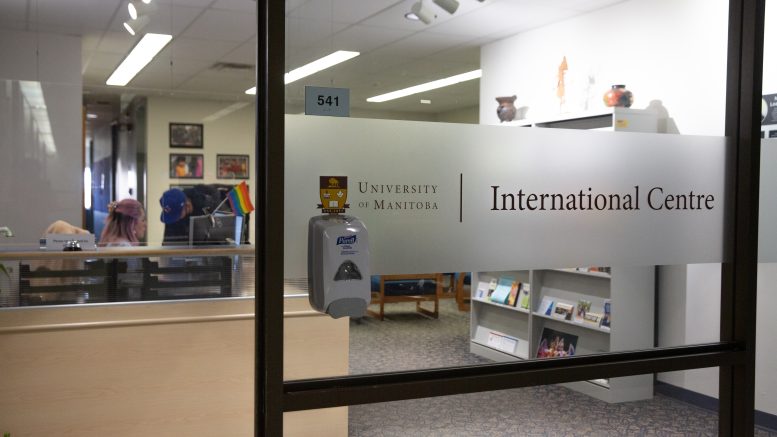The federal government announced on Oct. 7 that eligible international students will be granted the authorization to work more than 20 hours per week off campus. The temporary change will run from Nov. 15 this year to Dec. 31, 2023.
According to the government of Canada’s website, foreign nationals with an approved study permit application submitted by Oct. 7 will also be able to take advantage of the new changes.
International students are currently restricted to working 20 hours per week off campus during the school year.
Minister of Immigration, Refugees and Citizenship Sean Fraser stated that the move would help continue the growth of Canada’s post-pandemic economy, help employers in markets experiencing labour shortages find new staff and give post-secondary students a better opportunity to make money and gain work experience.
“More than 500,000 international students who are already here in Canada are going to be eligible to work more if they choose to do so,” Fraser said.
UMSU international students’ representative Kunal Rajpal said that the government’s ruling will help give international students the flexibility to work hours that are more conducive to a student’s schedule, allowing for more optimized study time and planned
savings.
Rajpal said that the existing law negatively affects international students in a variety of ways. He said that international students are limited in their choice of employer, and claimed that this leaves international students more vulnerable to abuse within the workplace. He said the new law will help broaden international students’ options and, ultimately, improve their bottom line.
“We can earn more, we can live comfortably,” Rajpal said.
“We are going through a housing crisis, minimum wage is too low, we do not have international health care, inflation is as high as it could be, we are going through financial distress.”
Then-Minister of International Trade Diversification James Gordon Carr stated that 2018 statistics showed that international students contributed an estimated $21.6 billion to Canada’s GDP, and supported almost 170,000 jobs. Between January and the end of August this year, more than 452,000 international study permits have been processed, a 23 per cent increase from the same period in 2021.
With the growing international student population contributing so much to the economy, Rajpal said that it is important their value is reflected in laws and policies. Although he said students have been happy to see the temporary change introduced, Rajpal argued that it should be made permanent.
He also highlighted the need to reinstate free health care for international students living in Manitoba, something he continues to advocate for.
“I hope to see [the] government recognize our value and make laws according to that, like for example, reinstating international student health care,” Rajpal said.
“International students [are] crucial to the economy of the province and the country, and with that, we should get the relevant protections,” he said via text message.



